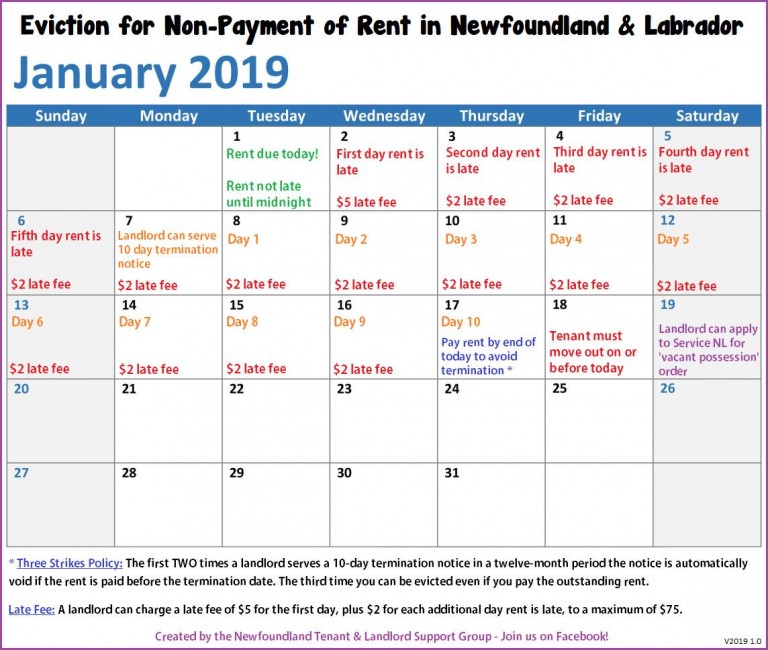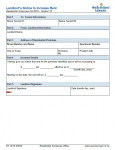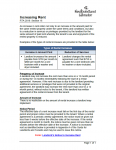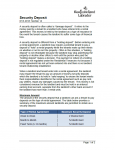In Newfoundland and Labrador, a landlord is free to set the rent at any amount they wish. There are, however, some rules about when and how rent can be increased.
General
If a landlord wishes to increase the amount of rent, they must notify the tenant in writing.
Increases to the amount of rent become effective on the first day of a rental period. A rental period begins on the day your rent is normally due. A rent increase cannot take effect in the middle of a rental period.
Rent cannot be increased during the first twelve months after a tenancy begins and can only be increased once in a twelve-month period.
A landlord is only permitted to collect the first month of rent and a security deposit of not more than 75% of the monthly rent amount when a tenant moves into a rental unit. A landlord is NOT permitted to ask for the “last month’s” rent, or the “last week’s rent”, as the case may be. You can visit our Help Topic on Security Deposits for more information.
Rental Increase Notice Periods
If a tenant has signed a fixed-term rental agreement, such as a year-long agreement, the landlord cannot increase rent for the duration of that agreement. If the landlord wishes to increase the amount of rent when the agreement expires, they must provide the tenant with at least six months written notice before the rent increase takes effect.
If a tenant is renting month-to-month and the landlord wishes to increase the amount of rent, they must provide the tenant with at least six months written notice.
If a tenant is renting week-to-week and the landlord wishes to increase the amount of rent, they must provide the tenant with at least eight weeks written notice.
Late Rent
If a tenant is more than five days late paying rent the landlord may serve a termination notice for non-payment of rent and begin the eviction process. We have created a Help Topic that specifically covers Termination Notices.
If a tenant does not pay rent by the end of the day it is due the landlord may charge a late fee. The maximum amount that can be charged for late fees is $5 for the first day rent is late and $2 for each additional day, to a maximum of $75. A tenant is only required to pay late fees if requested by the landlord. If the landlord does ask the tenant to pay late fees the amount of the late fees becomes part of the “rent” that must be paid to avoid eviction.
Other Ways to Pay Rent
Rent can be paid in ways other than money if the landlord and tenant enter into a written agreement to do so. The written agreement would need to explain what the tenant is expected to do, and the value placed on each item.
For example, let’s say the monthly rent is $750 and the landlord and tenant enter into an agreement that the tenant would maintain the property around a shared building for $200 per month. As long as the tenant maintained the property as agreed they would only need to pay the landlord $550 for rent each month, because the property maintenance work performed by the tenant would be worth $200.
Seizing a Tenant’s Property for Unpaid Rent
A landlord is NOT permitted to take possession of a tenant’s belongings as a result of a breach of the rental agreement or because the tenant owes the landlord money for rent. A landlord should not prevent a tenant from removing any of their belongings from a rental unit at any time. However, if a landlord has removed a tenant’s belongings from a rental unit and placed them into storage under the rules for abandoned property, a tenant is required to pay the landlord for the reasonable costs of removal and storage of the items before taking back possession of their belongings. We have created a Help Topic called Abandonment of Rental Unit that explains the process for abandoned property.





